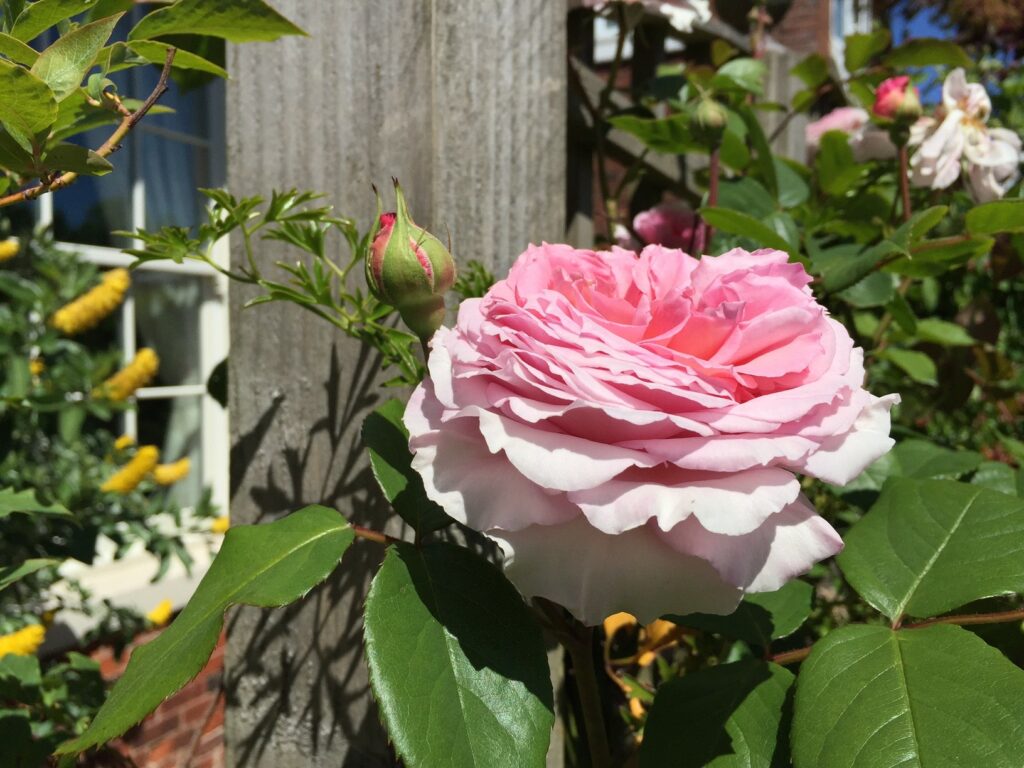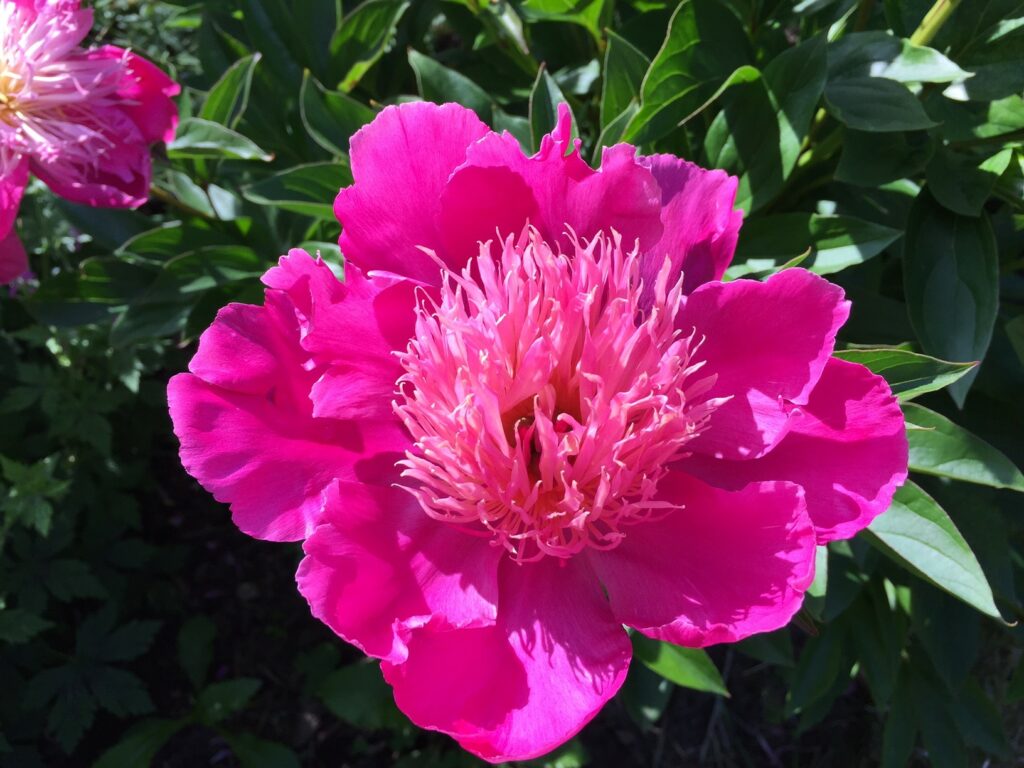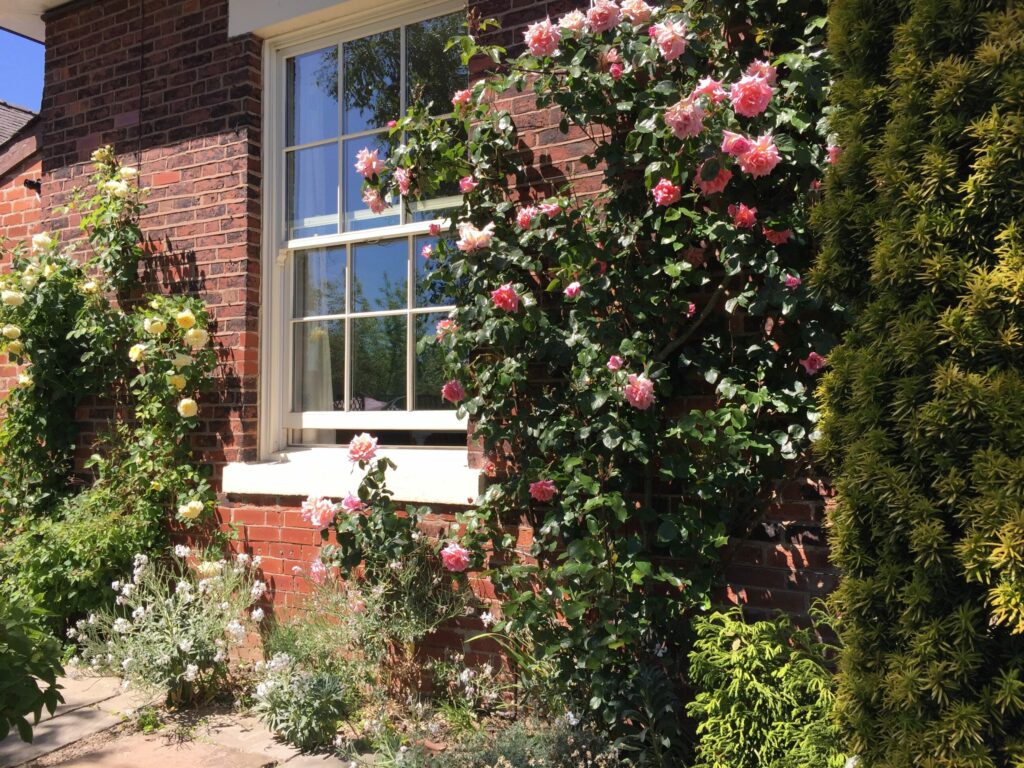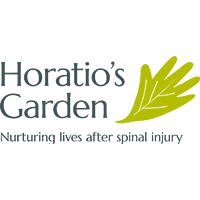Seeing gardening differently
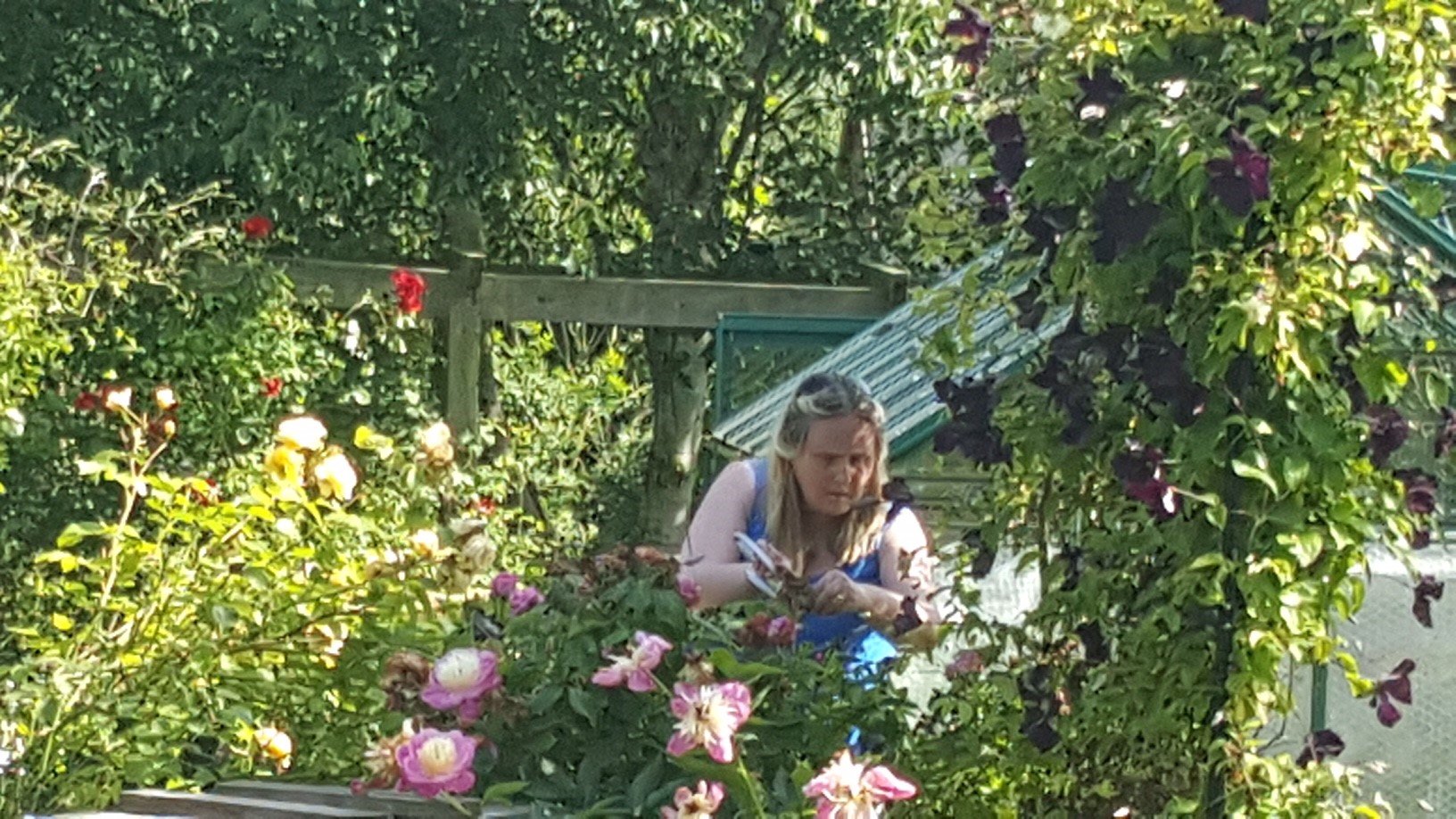
When Julie and David moved house to a property with a large garden, Julie had no idea of the learning curve she was about to embark on. Sycamores House in Nottingham is opening under Julie and David Scarle for the first time this year, we caught up with Julie, who is registered blind, to find out about gardening with a sensory impairment.
Julie says, “My husband is the passionate gardener, about five years ago we bought a new house which came with a garden of nearly 2 acres. I fell in love with the house, my husband said I would have to get on board with the garden so I have been on a bit of a learning curve! We inherited a lot of plants, the former owners also opened for the National Garden Scheme and had clearly invested time and love in it.
We’ve worked with what was already here but my sensory impairment has shaped additions when they’ve happened. We’ve just created a space for a water fountain as noises are so important in the garden; being able to sit and listen to the sound of running water adds to the tranquility.
The sound of movement in the grasses and rustling leaves is important too and we’ve just got a hammock to put up near the woodland walk. Later in summer when they are in full leaf I will be able to see the dappled sunlight coming though as they move.
I fall in love with what I can see and smell so the large blousy flowers tend to be my favourites. To be able to see any of the smaller flowers they would have to be planted in huge swathes. Some of my favourites are the ornamental kiwi (pictured), the bright orange philadelphia and the roses.
I’m not sure I should be pruning but I have some sturdy gauntlet gardening gloves and can feel my way around the plant. I take pride in looking after my favourite plants and knowing they are looking and smelling good because I have fed, pruned and loved them. You can’t do anything in life without a certain amount of risk!”
Like many people with sight loss, Julie loves the large blousy flowers and plants that pack a punch of scent!
Gardening does come with some challenges other than the risky pruning though, Julie can misplace her pruners and gloves numerous times while out in the garden. There are also a few steps to negotiate but Julie’s daughter is going to stencil some bright yellow and white daisies on them to help them stand out. Julie sees these as challenges to be overcome and says they don’t outweigh the joy the garden gives her.
There are so many spaces to the garden, it goes from being very formal at the top near the house and gets wilder as you move away with secret woodland paths, an allotment area, a wildflower meadow and a pond. In the Orchard, 17 apple trees are providing too many apple crumbles to eat so David has turned to cider making and they are also donating to a local foodbank.
Julie says that it is an unexpected joy to discover gardening late in life, one that she finds very stimulating both mentally and physically. She looks forward to having more time in the garden when David and she retire and hopes that in the meantime visitors will appreciate it as the work in progress it is.
Born three months prematurely, Julie’s retina were damaged during time in the incubator so she has never been able to drive… until David convinced her that a drive on the ride on mower was a good idea! The meadow might be a bit smaller than it was but all plants remain unharmed.
The garden at Sycamores House is open on Sunday 18 June.
CLICK HERE to find out more.
- Scent is an important part of the garden at Sycamores
This story originally appeared in The Little Yellow Book of Gardens and Health as part of our Gardens and Health Week 2023




